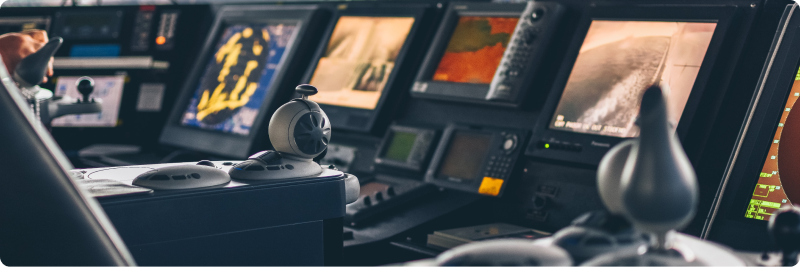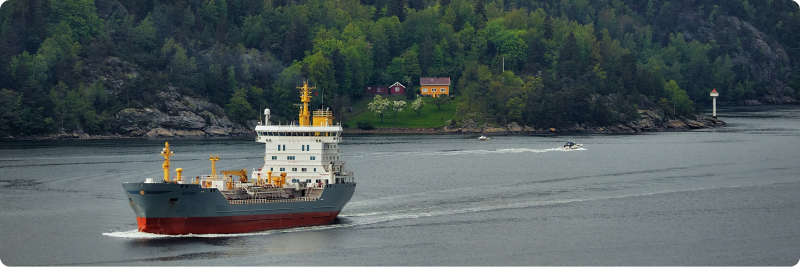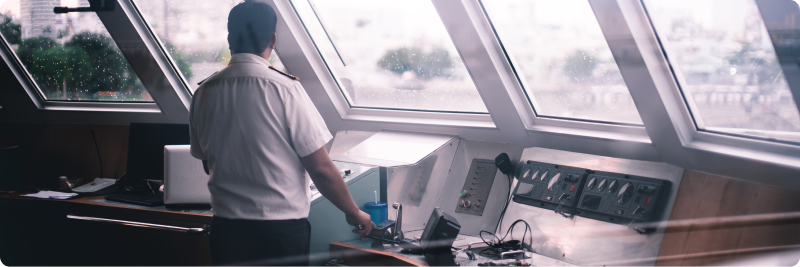Every vessel has a captain, who is vested with the legal authority to operate the ship. The captain is responsible for the safety of the ship and its crew, as well as for compliance with applicable laws and regulations.
The captain's authority may be delegated to other officers or crew members, depending on the circumstances. In this blog post, we will explore the scope of the captain's legal authority under U.S. law.
Have you ever wondered how the captain of an airline or ship achieved such a high level of authority?

It may surprise you to know that the origins of the captain's authority come from maritime law and tradition. A ship's captain had absolute authority and was the unquestioned commander responsible for the ship, cargo, and crew. The same concept in aviation was applied in the early years, before 1930.
Aircraft captain's absolute authority became essential after the advent of flying boats. Early regulations gave the pilot in command (PIC) -while in flight – the final responsibility and authority of the aircraft and crew members. So during the flight, the aircraft captain is basically the highest authority. If the situation requires, he/she can deviate from any rule to ensure safety of the passengers and the crew members.
We have heard stories or seen movies – such as Titanic – that a captain's responsibility also lies at the time of the sinking of the ship where he has to stay on the ship while everyone else escapes to safety, (even if there is room for the captain to escape as well). Although some cases are mythical, there are also legal repercussions, for which the captain has to stay on the ship.
In U.S. waters, maritime captains may have the legal right and reason to disembark before the last crew member, if the rescue vessel, for example, is going to need an experienced seaman and the captain is the best crew member to protect the safety of the passengers.
However, in most cases, the ship's master faces not only the moral responsibility to remain on board until all passengers and crew are safe (including stowaways), but also criminal liability.
Criminal Liability
According to International Labour Office (ILO), “boat owners of seagoing vessels, are required by law to ensure that all crew and passengers onboard are aware of safety management procedures”
ILO holds vessel owners liable for civil repercussions in the event of injury, wrongful death and other claims for financial damages if the captain fails to meet his legal responsibility.

The Power of the Captain
The power vested in a ship's captain or an aircraft's pilot is staggering when you think about it. They are responsible for ensuring the safety of not only themselves, but also their passengers and crew. In order to maintain control during flights or while at sea, captains need to be able to make quick decisions without second-guessing themselves.
In order to make sure that everyone aboard is safe, captains must be able to put their egos aside and follow protocol. They need to have a clear head and be ready to take charge when necessary. This level of responsibility is not for everyone, but those who are up for the challenge often find it to be an extremely rewarding experience.

Conclusion
The legal authority of a ship's captain is extensive and carries significant responsibility. Rooted in maritime law and tradition, the captain holds absolute authority over the ship, cargo, and crew. Similarly, in aviation, the aircraft captain possesses ultimate responsibility and authority during flight. This authority allows them to deviate from rules if necessary to ensure the safety of passengers and crew members.
The captain's authority extends beyond the operational aspects of the vessel. They also bear moral and legal responsibilities. In situations such as a shipwreck, the captain may be required to remain on board until all passengers and crew are safe, potentially facing criminal liability if they fail to do so. The captain's role in ensuring safety management procedures and the awareness of crew and passengers also holds them accountable for civil repercussions in the event of injury or wrongful death.